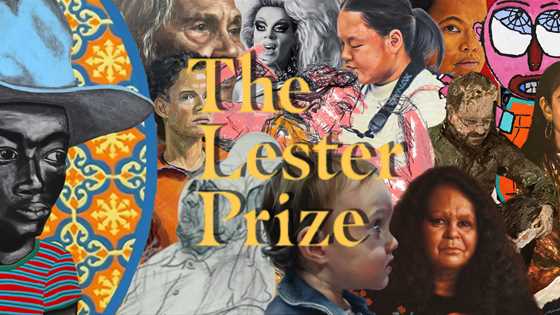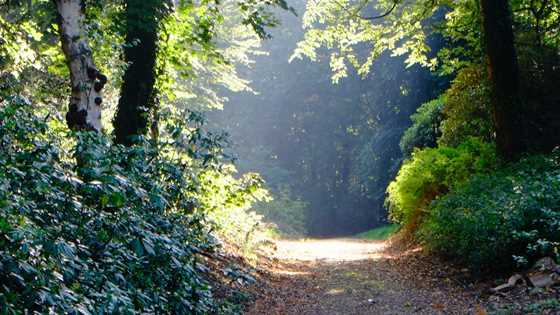For Perth giving circle 100 Women, it’s clear that groups can drive the greatest change.
Ever wondered whether your direct debit donation made it safely to your nominated charity? Or how much real impact your monthly contribution is actually making on the world?
Those same questions are at the heart of Perth group 100 Women, its members dedicated to combining their individual donations to create a bigger pool of funds – and deciding between them how and where to allocate the money to make the biggest possible impact.
Each member contributes $1200 per year to the circle. This may seem like a sizeable sum of money, but with big funds comes big impact. By handing out fewer-but-larger grants, the aim is to engender more significant change than would be possible with the equivalent sum distributed in smaller amounts.
The mission statement of the group is to end global discrimination against women, an aim that grew from the feelings Alicia Curtis experienced as she read Half the Sky, a book by renowned US journalists Nicholas Kristof and Sheryl WuDunn.

Alicia Curtis, chair of 100 Women, speaking at their 2014 launch.
The book tells of girls as young as three being sold to Cambodian brothels, of hundreds of female babies going missing in China each year, and of rape and genital mutilation in West Africa. The impact on Alicia – now the leadership facilitator and chair of 100 Women – was immense.
"For me, Half the Sky shows there is still a discrimination against women that overshadows our community, and that we need to stand up and say something," she says.
What struck Alicia the most about the book was what is being done to help
the women who endure these real-life horror stories. She was inspired by how
great a result can be achieved in the larger community by even small amounts of philanthropy towards women. What's more, further research backed up the notion that when you fund women's projects, you're directly increasing living standards for the community in general.
"I remember one story about a girl in regional Asia having her education funded," she says. "That one act was able to sustain a whole community. It's just mind-boggling. It doesn't always take big things. It can be the smallest of things."

The inaugural committee of the group in 2014.
Inspired, Alicia teamed up with friend Megan Anderson, who was already busy
working with not-for-profits and who has since become the vice chair at 100 Women. Together they put a shout out over Facebook, to see who else would be interested in joining them.
The result was astounding. From their casual call-out, they were able to form
their whole advisory committee, including women with experience in not-for-profits, grants, marketing, and business development.
That was in October 2013: within six months, 100 Women had launched, a speed record in the not-for-profit world, says Megan. It came together with such celerity, she believes, because everyone is so passionate about the cause. "It really shows that there are so many people out there, just like us, who are keen to do something. For most of these women, it is their first time being a part of something like this – they have a real craving for it."
Indeed, from the first session, Megan says there was a real energy to the group. "We can come out of a meeting with the longest to-do list, and still feel inspired and uplifted and energised, knowing you have all this stuff to get through."

Members share more than a desire to support worthy charities – the 100 Women group also has a social aspect, such as yoga sessions in the park.
Alicia believes that the simplicity of 100 Women is its chief drawcard. "A lot
of our members say they look at the concept and just go, 'It's an easy way to get
involved'," she explains.
And it is simple – all the time potential donors might otherwise spend researching legitimate charities is taken care of by 100 Women's educated and experienced advisory committee. It's a committee that's brimming with passionate, well-educated, accomplished women, and that's vital in the process of deciding the most effective use of funding, explains Megan.
The 100 Women team assesses grant applications to ensure they fulfil the group's core objectives: ensuring safety, economic freedom, health and education for women. Then, after a short list has been decided upon, all members of the group are invited to attend grant education nights, at which they can listen to representatives of each charity speak about their cause, and then chat to them after. It's a way of providing members with a chance to connect on a real, personal level with the charities, helping them to make informed decisions about where to put their money, says Alicia.
It's also about transparency. Megan explains that the goal is for members to fully understand how they reached their decisions, the processes they used, and just where their money is going. "So they don't have those question marks – so they don't feel like they're not sure if the money is going anywhere," she says. "This will make people feel confident."
Both women agree that the decision-making process is a strenuous one. How on earth does one choose the good work of one charity over another? It's a massive relief by the time the group holds its grant awards ceremony, at which the money is finally handed out to successful charities.

Maria Saraceni and Erica Smyth, two ambassadors for the giving circle.
In its first year of operation, the circle managed to raise $100,000 in just over eight months. From this, two major grants of $40,000 were handed out at the ceremony in November, as well as one grant of $14,500.
One of the major grants was awarded to Zonta House Refuge Association, a community organisation in Perth that offers care to women in crisis. The other two grants were given to Opportunity International in India and the Global Development Group in Cambodia.
Alicia says the grants chosen by the women last year really resonate with what members want to focus on. "Making sure women are safe – domestic violence is such a huge issue, as is health around the world – it enables women to go back into education and get in to work. You have to get those basic rights."
Beyond providing hard cash to good causes, members of 100 Women are given
the opportunity to become involved directly with the charity groups.
"Our members want to be involved in different ways – they want to give their time and expertise," says Alicia. "Many of these women have been looking for somewhere to give their time to but just don't know where to start.
"We've now done that bit of research for them, and found some good organisations they can trust."

The grant awards ceremony, at which the funds are presented to the selected charities, is the culmination of a strenuous but worthwhile process.
One such member, 29-year-old Amethyst Duggan, heard about 100 Women over Facebook when one of her friends suggested she 'like' the page. Having been looking for something with which to get involved for some time, she contacted Alicia immediately and went right on to the committee team.
It's the inclusiveness of 100 Women that appeals most to Amethyst: no matter your financial status, the group is so welcoming towards anyone who wants to help out. And as we sit chatting, following one of their 'Yoga in the Park' meet-ups, the embracing nature of the giving circle can be felt strongly.
Membership to this group of people grants access to a network of passionate, supportive and educated women. Outside of their philanthropic work, these women regularly hang out, whether it be for coffee catch-ups or art gallery outings.
"The close contact and networking is a really important component of a giving circle and that's probably the biggest aspect of the culture," Megan says. "It's women with similar interests and passions who are coming together, meeting and discussing."
That passion was evident at the end of the last year, when Alicia walked into a committee meeting and suggested the women take December off, to give everyone a break.
"They were all like, no, no – we've got plans to do!" she says. "Everyone is so passionate. It's about involvement. People now, more than ever, want positive things to be involved in. But it's also about balance – making sure we've got fun times as a committee as well as the hard work."








